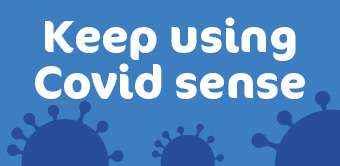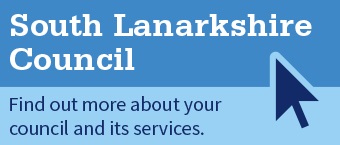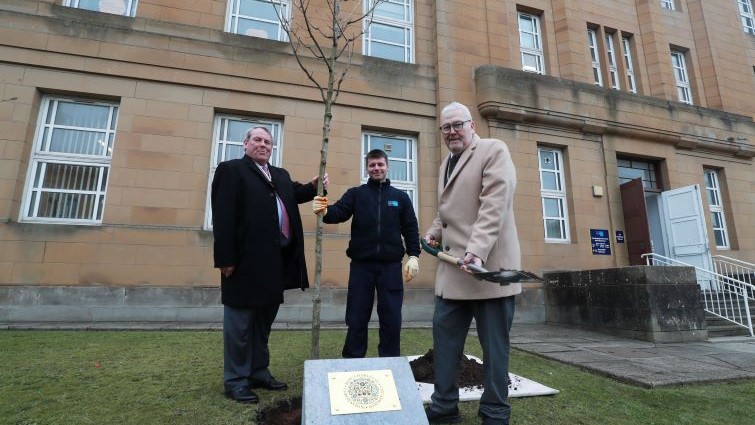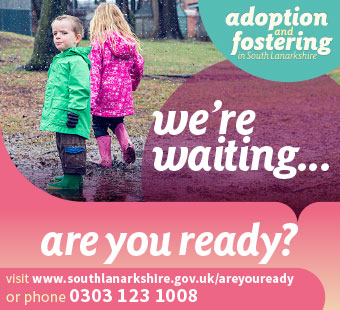Giving a new life to frightened and alone young people
Published: Thursday 10 August 2023
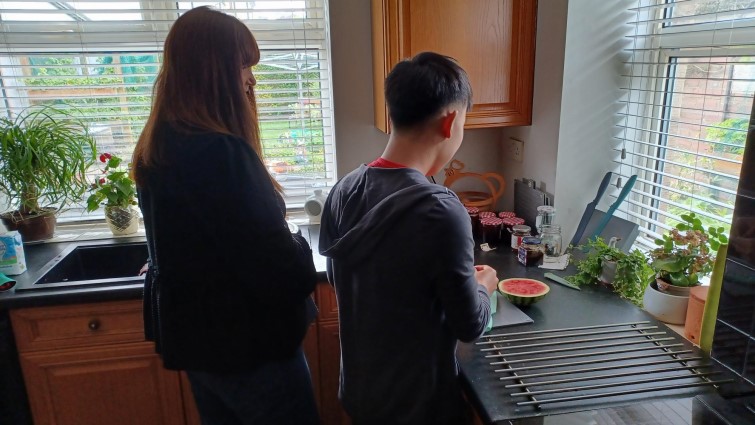
One of the most fulfilling ways to help others is to offer safety and refuge to children who have been forced to flee horrors.
Ordinary people from all corners of the world are being forced in unprecedented numbers to leave their home countries and flee from war and persecution.
They seek asylum wherever they can find safety, after a journey that often involves dangers to rival those that had forced them from their homes.
And among the most vulnerable when they reach their destination are increasing numbers of young people who find themselves alone, with no family or even familiar faces, in a country with a culture, customs and language alien to them.
What they need most urgently is a place to live where they can learn the skills they will need to live as independent adults in Scotland and, at the same time, feel safe, valued and encouraged – and offering exactly this are those who volunteer as supported carers.
The Supported Care Service supports young asylum seekers aged 16 to 18 who have travelled to the UK from countries as widespread as Syria, Iraq, Sudan, Vietnam and, increasingly, Ukraine. Similar to foster carers, supported carers offer a home to these young people but in a more flexible way.
The more mature age of the young people allows them to be left on their own at times, meaning that carers do not need to give up their main employment, while at the same time the young person can be helped to develop the skills and confidence needed for living their own independent lives.
The young person might need support with everyday jobs like ironing, cooking, and cleaning, as well as the more complex tasks of budgeting, developing social skills, managing relationships, social media and other pressures faced by young adults of any nationality and background. However, as asylum seekers, these young people are likely to have the additional pressures of needing help with adapting to a new culture and different conventions and practices.
These particular young people are also likely to have experienced trauma in their lives, so in addition to practical support, they need a safe and supportive environment that fosters their emotional wellbeing.
One carer who has seen the rewarding aspects of helping both Scottish children and asylum seekers is Gill Seth, who had been fostering – mainly teenage girls – for 25 years before receiving a phone call about a young girl in need of urgent help.
The 17-year-old had been trafficked from Vietnam to Scotland but had managed to escape in the middle of the night and, terrified and with no English, had only the option of a scatter flat if Gill was unable to take her in.
“How could I say no?” Gill said. “However, it was all new to me, too, and I tried to learn a lot in a short time.
“To start off right, I Googled Vietnamese dishes… and when she arrived it turned out she didn’t like rice or noodles!
“However, she turned out to be a lovely girl, very eager to learn herself and making my first experience of taking in a foreign young person so much easier and, in fact, an absolute pleasure.”
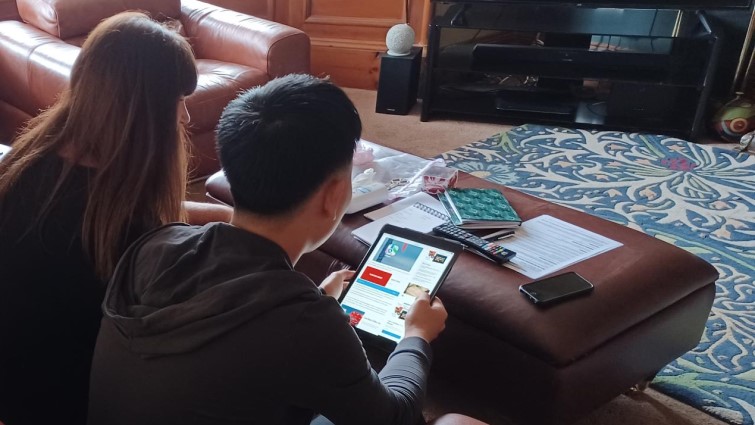
Gill received support from the Home Office and other official agencies, and the Aberlour Trust appointed a guardian to work with the girl on her asylum claim. The council also provided a designated social worker who was in regular contact, and the Throughcare Team who are there to help the children in these care situations were able to support Gill, too.
However, there were situations where Gill had to find a solution herself.
“But then that’s the whole point of being a carer in the home situation,” she said. “As an asylum seeker, her life was very restricted. For instance, she was not allowed to earn and she couldn’t apply for any benefits.
“I was conscious she would be totally bored, so I showed her my hobby of knitting and she picked it up immediately. It’s amazing how a small thing like that can make a big difference – it even helped with her nightmares.
“I also found out that the two religions in Vietnam are Buddhism and Roman Catholicism so I spoke to the local priest and, through him, discovered that there is actually a strong Vietnamese community in Wishaw, which let me put her in touch with them.
“I also got her volunteering in a local charity shop, which not only helped her to start meeting people and integrating into the community, but also forced her to use English and improve her progress in that.
“It’s all about thinking about what they need and what there is around us that can help.”
There are opportunities for others who want to follow Gill’s example. South Lanarkshire Council is seeking families who can offer supported care to young unaccompanied asylum seekers.
Supported carers receive regular supervision and training and are paid a weekly allowance and the young people in their care will have their own dedicated social worker to provide ongoing practical and emotional support.
Anyone who would like to find out more and apply online can do so on the council website or can get in touch by email.
Gill added: “I would encourage anyone who is thinking about it, to go for it. It is the best thing I have ever done – of course at times it is hard and challenging and you wonder why you got involved in it, but there are so many other times that are wonderful and you know exactly why you are doing it.
“Since I had that first asylum seeker, I've been delighted to take two more. Knowing the life that these young people have had, and then seeing them in the future, especially when they have moved on and have lives of their own, is the most wonderful feeling in the world and one you could never understand unless you experience it yourself.”
21 February 2025
Safety improvements to be made on A726
21 February 2025
Council objects to boundaries change for East Kilbride
20 February 2025
Free meals entitlement extended in primary schools
20 February 2025
Are you worried that an adult could be at risk of financial harm
19 February 2025
Council steps back from X social media platform
19 February 2025
Apply now for a garden waste permit
18 February 2025
Planting a fitting memorial to the King’s coronation
17 February 2025
Celebrating the impact of Family Support Hubs in South Lanarkshire
14 February 2025
Top award is won as young warriors battle waste
13 February 2025
Work underway to remove trees worst affected by ash die-back disease




